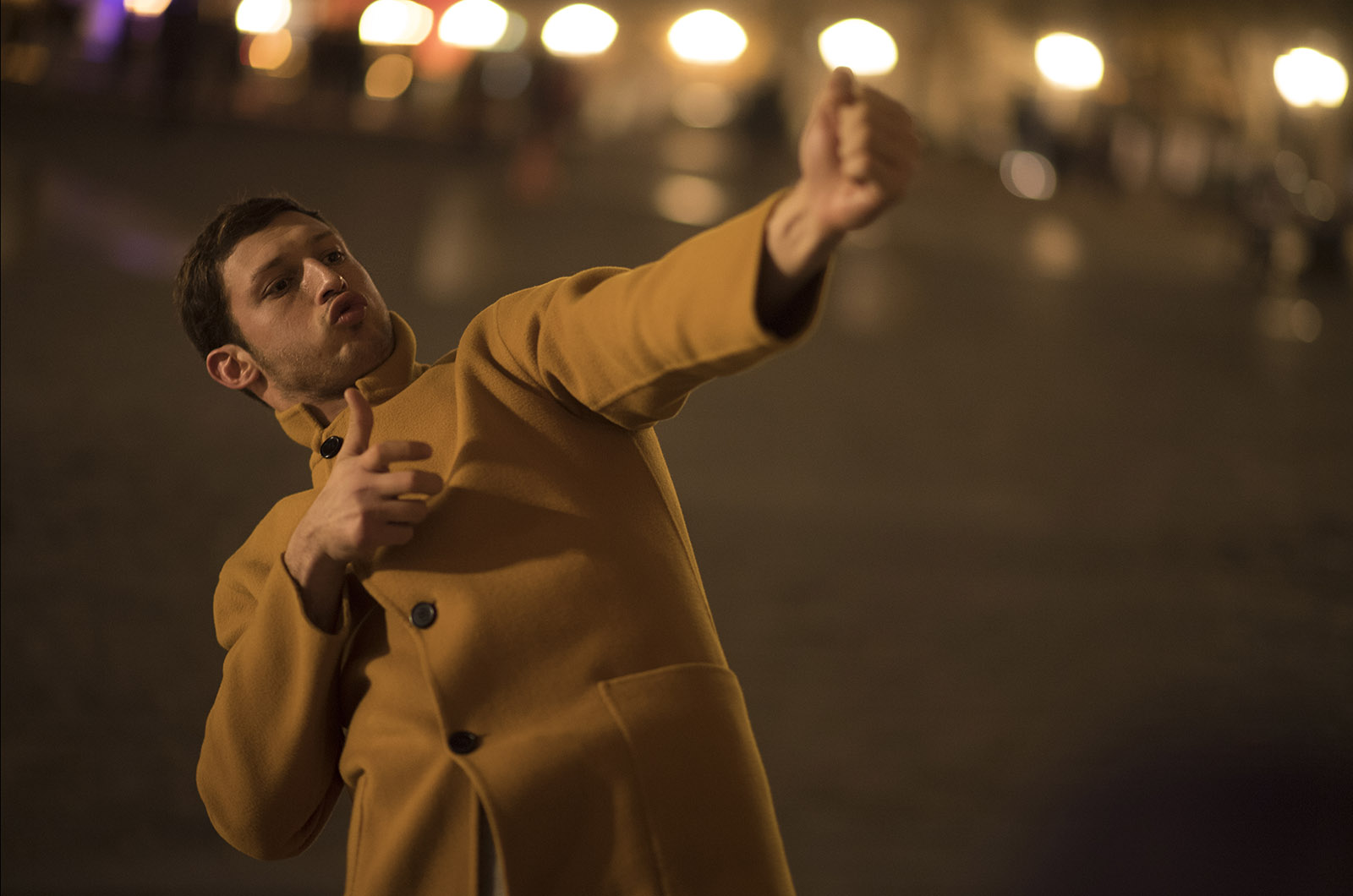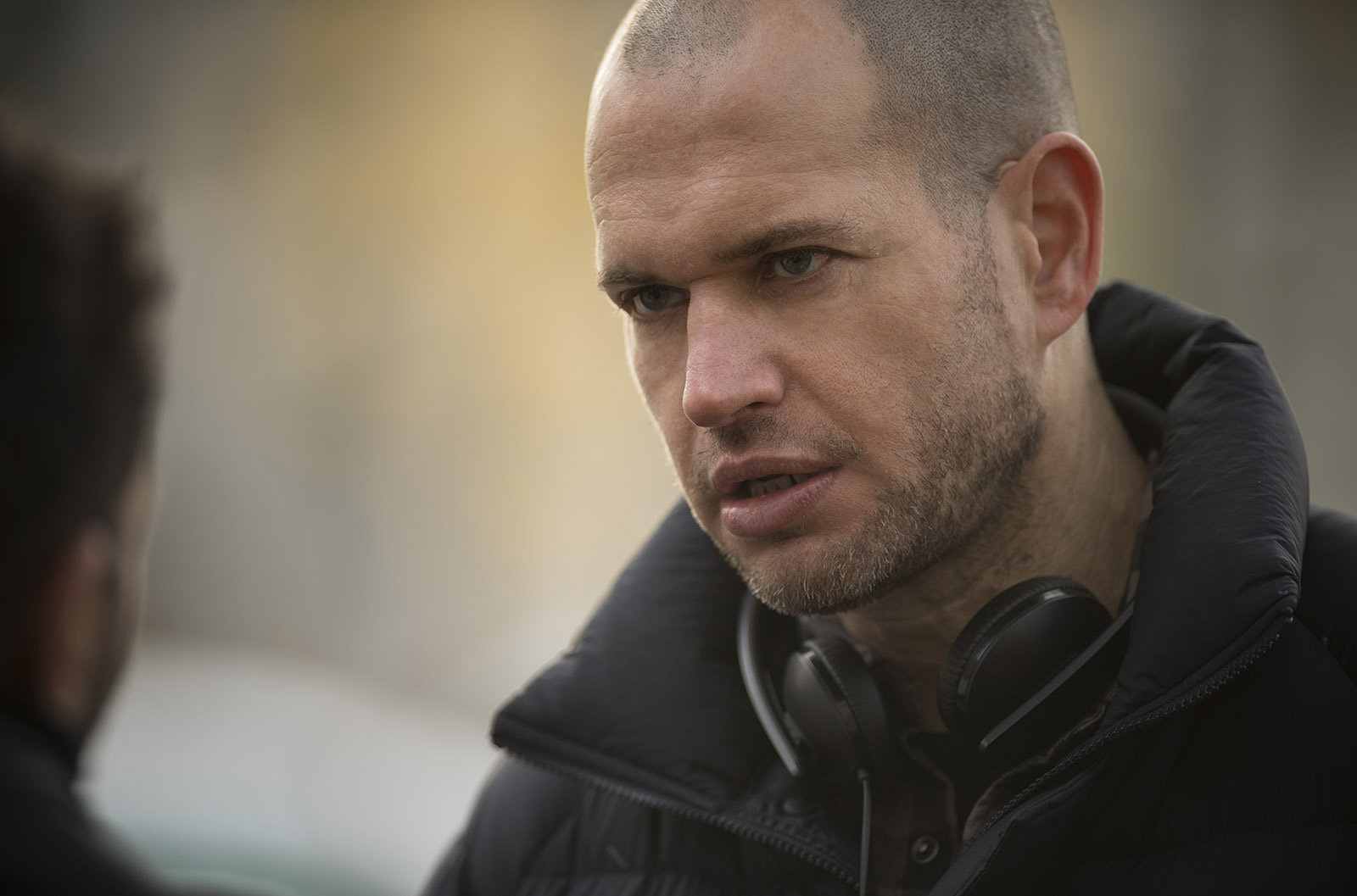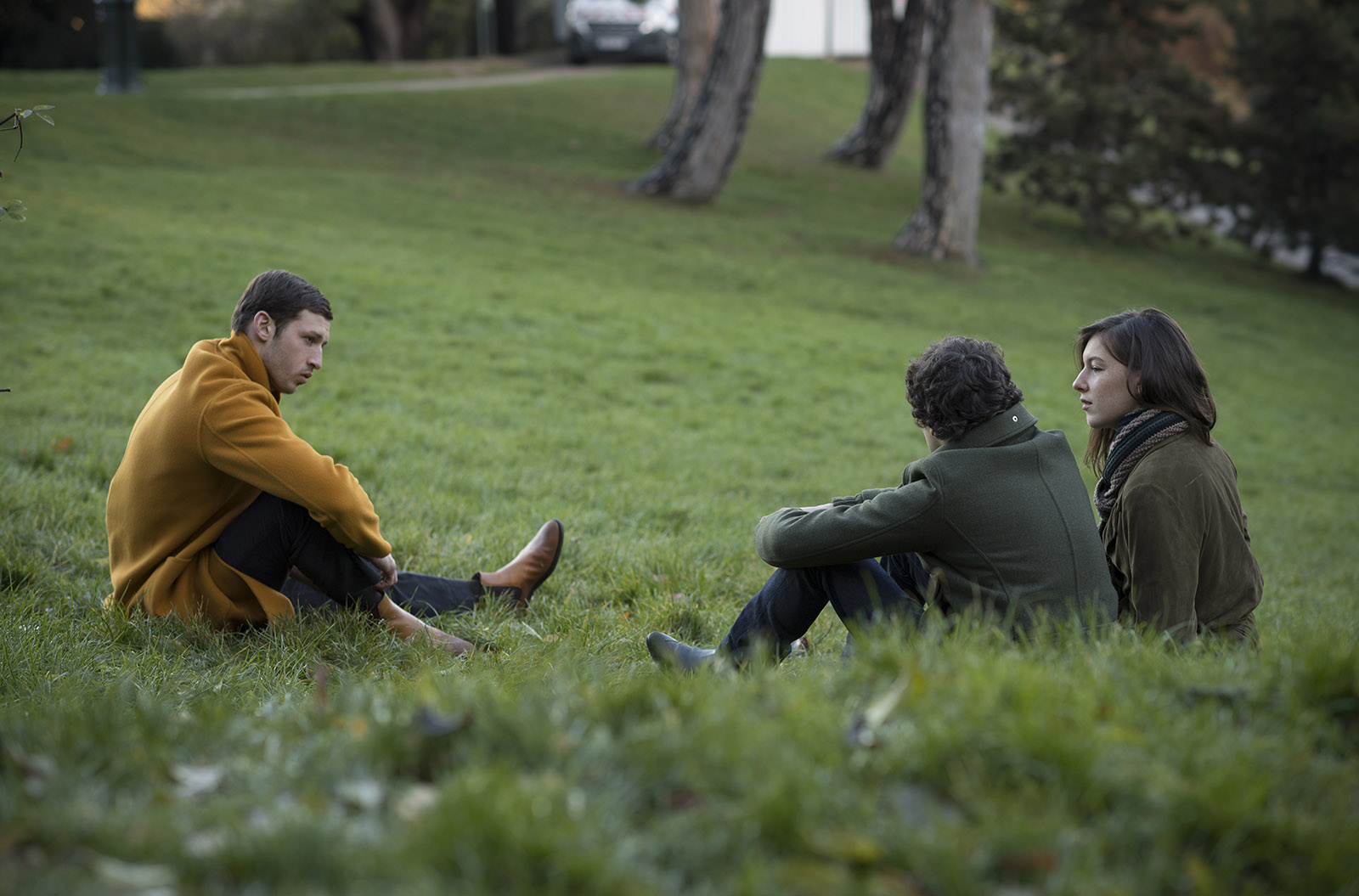“Let the Jews find their Jerusalem in France,” so Napoleon said. It’s a proposition that Nadav Lapid’s quasi-autobiographical new film, Synonyms, takes literally, dropping an alienated Israeli expat down in France. Or at least inside a French movie.
Both conceptually and stylistically, Synonyms—described by its director-writer as “the story of an Israeli guy who decides to leave Israel to heal himself from the Israeli sickness and to become French”—is at once an ambivalent love letter to Paris and a startling act of cinematic aggression. The camera moves are brusque. Traffic is hectic and crowds are pushy. Frustration is evident. The protagonist, Yoav (Tom Mercier, an Israeli of French descent), is last seen hurling himself against a locked door.
Lapid has made a continuously surprising film. Synonyms is comic, disturbing, and anguished by turns, as obvious as it is opaque in raising certain questions of national identity: Can Jews ever be European? Who is really deracinated or, in Lapid’s term, “sick”: the “rootless” Diaspora Jew or the imposingly grounded Israeli?
Yoav arrives in Paris to an empty flat and then, panicked by the realization that someone has stolen his belongings but still naked from a shower, ridiculously locks himself out of the apartment. Shivering with hypothermia, he is discovered and taken in by a young couple, Émile (Quentin Dolmaire) and Caroline (Louise Chevillotte), who warm him up in their bed.
These poised hipsters have a family resemblance to the fashionable siblings who adopt a gauche American in The Dreamers, Bernardo Bertolucci’s risible 2004 paean to youth, cinephilia, and Mai ’68. They are, however, lovers and, as such, ripe for an Oedipal triangle: the pair—in effect, Yoav’s new parents for restoring him to life—give their born-again foundling money and clothes (including the ridiculous orange overcoat that becomes his visual trademark). He reciprocates with his only possession, taking the piercing-ring from his nose. From the outset, Émile and Caroline (who immediately comment on the fact of Yoav’s circumcision) have a latent sexual interest in the hunky, if inexplicable, Israeli. As they objectify Yoav, so he idealizes France—although his passionate desire to love his new country is a feature of an even more fierce desire to escape his old one.
Defining nationality by language, Yoav refuses to speak Hebrew. He learns French from a dictionary the better to heap insults on his homeland: Nasty, Ignorant, Odious, Sordid, Abominable, Lamentable, Idiotic… He also regales his new friends with fantastic tales of his service in the Israel Defense Forces, claiming to have learned to play the Pink Martini song “Sympathique” on his machine gun. Émile, a would-be writer, working on a novel titled Nights of Inertia, is enthralled by Yoav’s authenticity. Caroline is too, albeit more grudgingly—as may be anyone watching the movie: Mercier, a judo champion–turned-dancer and here in his first movie role, is at once forbiddingly impassive and physically expressive, a bottled-up force of nature.
Synonyms is Lapid’s third feature. In Policeman (2011), two violent quasi-tribal groups—one an elite police commando unit, the other a band of left-wing Jewish terrorists—find each other, with predictable results, at the wedding of a billionaire’s daughter in contemporary Tel Aviv. Fanaticism also figures in Kindergarten Teacher (2014), in which the eponymous protagonist becomes obsessed with protecting the poetic genius she attributes to a five-year-old boy in her class. (It was remade in the US a few years ago as a vehicle for Maggie Gyllenhaal.) The prodigy is also called Yoav, and his poems were written by Lapid himself when he was a child. The Yoav of Synonyms might be that earlier Yoav as he would be some twenty years older.
Some critics have described Yoav as a schlemiel. This is incorrect. He is anything but hapless. Given his naïve optimism, the character of Candide might be a more apt comparison. Yoav wanders from scene to scene, taking what comes. He briefly works as a security guard at the Israeli embassy, successfully auditions for a porn film (the only time he uses Hebrew in the movie); then, prodded by Émile, he becomes somewhat passively affianced to Caroline and takes a naturalization course. All three misadventures provide the movie’s funniest scenes.
Like Lapid’s earlier features, Synonyms is enlivened by strange encounters in bars and, like previous Lapid protagonists, deadpan Yoav expresses his individuality through a frenzied solo dance. The film’s other Israeli characters are wildly bellicose; their French foils seem comically imperturbable, if not suavely clueless. In one memorable scene, Yoav takes the Metro with a fellow security guard who, placing a kippa on his head and loudly humming “Hatikvah,” gets in the face of successive, discomfited passengers crowded into the car. That these characters would not likely be “othered” in French society—none, for instance, would be taken for North African—underscores a particular pattern in Lapid’s work. Neither Policeman nor The Kindergarten Teacher includes Palestinians. Israeli self-absorption is total.
Advertisement
Synonyms has a different dynamic. In Paris, Yoav is the Other. Surely speaking for Lapid, he several times refers to a childhood fixation on the Iliad in which he favored Hector over Achilles, something his Israeli colleague, the security guard, finds inexplicable. Rebellious in itself, Yoav’s identification with a Hellenic myth, rather than a biblical one like David and Goliath, is compounded by his even more taboo affinity with a figure whom his colleague defines as a “loser.’’ (Indeed, if Synonyms were put on the couch, a politically minded analyst might unpack Yoav’s rejection of the victorious bully in favor of the defeated foe as a guilty, unconscious sympathy for the Palestinians.)
France, the arena for Yoav’s identity crisis, occupied a significant place in Lapid’s own development. He lived in Paris for several years (his script for Synonyms is based on the notebooks he kept), and there decided to become a filmmaker—though it had not been his original plan. “I wanted to go to a place where all the Israeli qualities would be despised,” he told the audience at the recent New York Film Festival, referring to his country’s aggressive national identity, and adding that certain French characteristics—presumably, in particular, its cosmopolitanism—were correspondingly derided in Israel.
As acerbic as it is toward Israel and Israeli mores, Synonyms was well-received there. And, after winning the top prize at the last Berlin Film Festival, it has been a source of national pride. Lapid himself has admitted some surprise that, back from Berlin, he was greeted as a hero (though one wonders whether Israel’s several hundred thousand originally French Jews, many recent arrivals, were similarly so impressed). Synonyms also appears to have generally been well-received in France. A few reviewers found the movie confusing, as well they might, given that it has as much to do with France as Israel. Indeed, in its desire to expose French hypocrisy, as well as its manic tone, Synonyms has a kinship with Patrick Modiano’s first novel La Place de l’étoile (1968), an enraged, madcap rejoinder to Sartre’s assertion that Jews are defined by anti-Semitism, in Anti-Semite and Jew, made with repeated references to Groucho Marx and a spirit of insolence rivaling that of the young Philip Roth.
French secularism—the concept of laïcité expounded with ludicrous exaggeration and menacing self-righteousness by the teacher of the naturalization course Yoav attends—can be understood to derive from the integration of French Jews in the early nineteenth century. As noted by Maurice Samuels in his 2016 history, The Right to Difference, “Jews provided the Revolutionaries with a means to articulate what the new state would be, which is to say, secular and ideological…based on voluntary affiliation with an idea rather than ancestral ties of blood.” Lapid burlesques the notion of laïcité—not only with the teacher’s extreme definition, insisting that no religion can be tolerated by the state, but also by having Yoav bellow, at her request, a national anthem that is far more menacing and blood-thirsty than the simply hopeful Israeli anthem “Hatikvah,” namely, the “Marseillaise.” Here, the synonyms are manifest. France has its own belligerent nationalism, and laïcité is utterly foreign to Israel (the only nation on earth in which Jews are not wedded to the separation of church and state).
Can it be the Jewish part in laïcité, the purported inclusion of Jews by there being no state religion, that Yoav has in mind when he disrupts a genteel orchestra rehearsal and shames Caroline, mortally offending her, with an enigmatic rant that he has come to save France? Yoav’s last words, delivered as an unanswered farewell to Émile through a locked front door, are: “You have no idea how lucky you are to be French.” I see no irony here, only pathos. Forget the Israeli “sickness.” The unspoken corollary to Yoav’s complaint is the Yiddish saying S’iz shver tsu zayn a Yid: It’s hard to be a Jew.
Synonyms, directed by Nadav Lapid, is on release from Friday, October 25.






